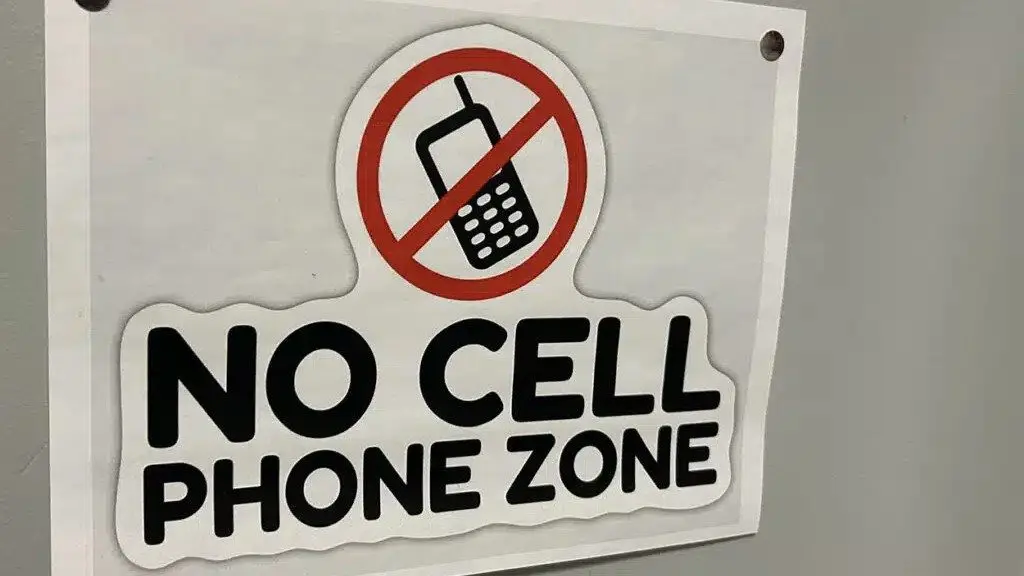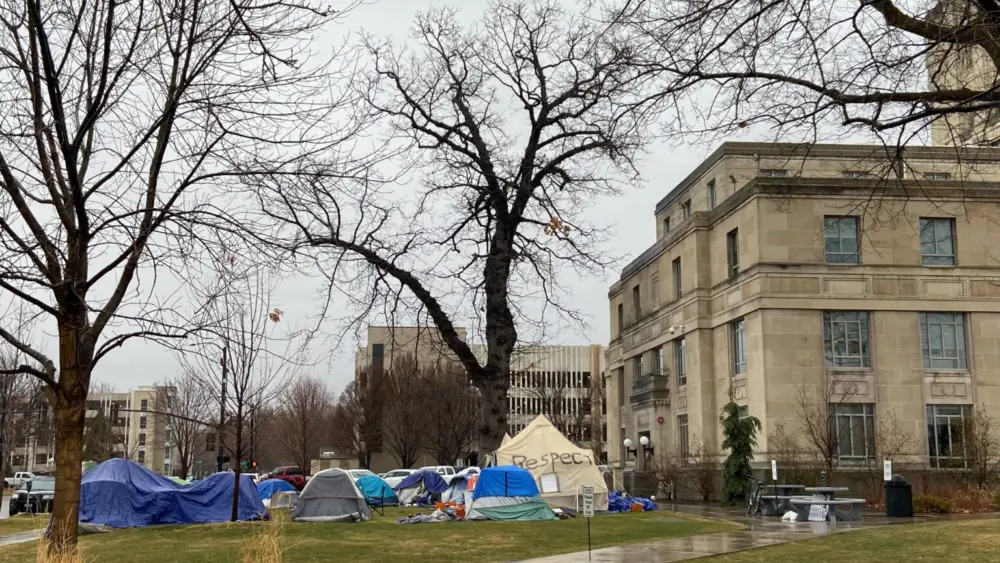GIG HARBOR, WA – When the Peninsula School District implemented one of Washington’s first bans on cellphones in the classroom two years ago, Keyna Houston said it could not have come soon enough.
“I was like, ‘thank the Lord,’ ” the Gig Harbor High School English teacher, told Gig Harbor Now and the Kitsap Sun last year. “Finally, I don’t have to fight this battle on my own.”
Unsurprisingly, teachers had by far the most positive reaction to these policies. They reported less stress, better ability to manage their classrooms and social benefits for their students, according to new research out of the University of Washington.
The unpublished study, which has not yet been peer-reviewed, offers the first systematic look at how teachers, parents and students in Washington feel about these policies.
Put your phones away
Districts moved to curtail phone use in recent years, after reporting unprecedented levels of disruptive behaviors and worsening mental health among students following their return from the pandemic closures. Following Peninsula’s lead, all schools in Kitsap County enacted some restrictions over the last year.
The Washington Office of Superintendent of Public Instruction said 53% of districts in the state will have a policy restricting cellphone access in place by the start of the school year; 31% of districts require students to put away devices for the entire school day.
UW researchers surveyed more than 5,000 students, 220 teachers and 480 parents across six districts, including Peninsula, said lead author and assistant psychology professor Lucía Magis-Weinberg. She studies how adolescence has been altered in the digital era.
Students were less enthusiastic about the bans, with the vast majority saying they did not perceive an impact. According to Magis-Weinberg, 70% of students said the policies had “no impact” on their ability to pay attention, as opposed to 20% who said it had a positive impact. A majority also said it had no impact on their well-being.
Survey results did not seem to indicate that students though cellphone bans made things worse.
“That was very surprising to me,” Magis-Weinberg said of the findings. “I would have expected them to be against the policies and to be quite negative about them.”
Open questions about cellphone bans
How effective are these bans at achieving their prescribed goals, and what type of restrictions are most effective? Those questions remain open.
Nobody doubts that phones can be a big distraction, so when implemented well these bans can encourage better habits, Magis-Weinberg said. At the same time, each district needs to tailor them to its needs and ideally create policies with input from students and staff.
Both students and teachers prefer consistent application of these restrictions, with administrators providing rules that are aligned between teachers and classrooms. When schools leave decisions about phones up to teachers, “no one likes that,” Magis-Weinberg said. It tends to pit teachers against one another.
Removing phones in isolation was not enough to promote social interaction, researchers found. Schools still need to introduce alternative ways for students to connect, through activities or games.
Bans also did not appear to produce huge improvements in academics or mental health outcomes. But Magis-Weinberg said they seem to have introduced incremental improvements, particularly for teachers.
Better digital habits
These policies allowed teachers to shift from “referee to coach,” she said. They can now encourage better digital habits rather than taking punitive actions against students.
“Anything that helps teachers be less stressed, feel more effective and changes the relationship from policing to actually having time to teach and connect with students, I think that’s important,” she said.
Middle school teachers also reported that students seemed more relaxed and had returned to more “goofy” and “playful” behavior. Students had become too concerned with how they were perceived, teachers reported. Fear that someone would record or take a picture of them changed how they behaved.
“Even if a school is not implementing a ban,” she said, “I think it’s a clear takeaway that (schools) should really be very very strict about recording.”
This article was first published by the Kitsap Sun through the Murrow News Fellow program, managed by Washington State University.
Washington State Standard is part of States Newsroom, a nonprofit news network supported by grants and a coalition of donors as a 501c(3) public charity. Washington State Standard maintains editorial independence. Contact Editor Bill Lucia for questions: info@washingtonstatestandard.com.





